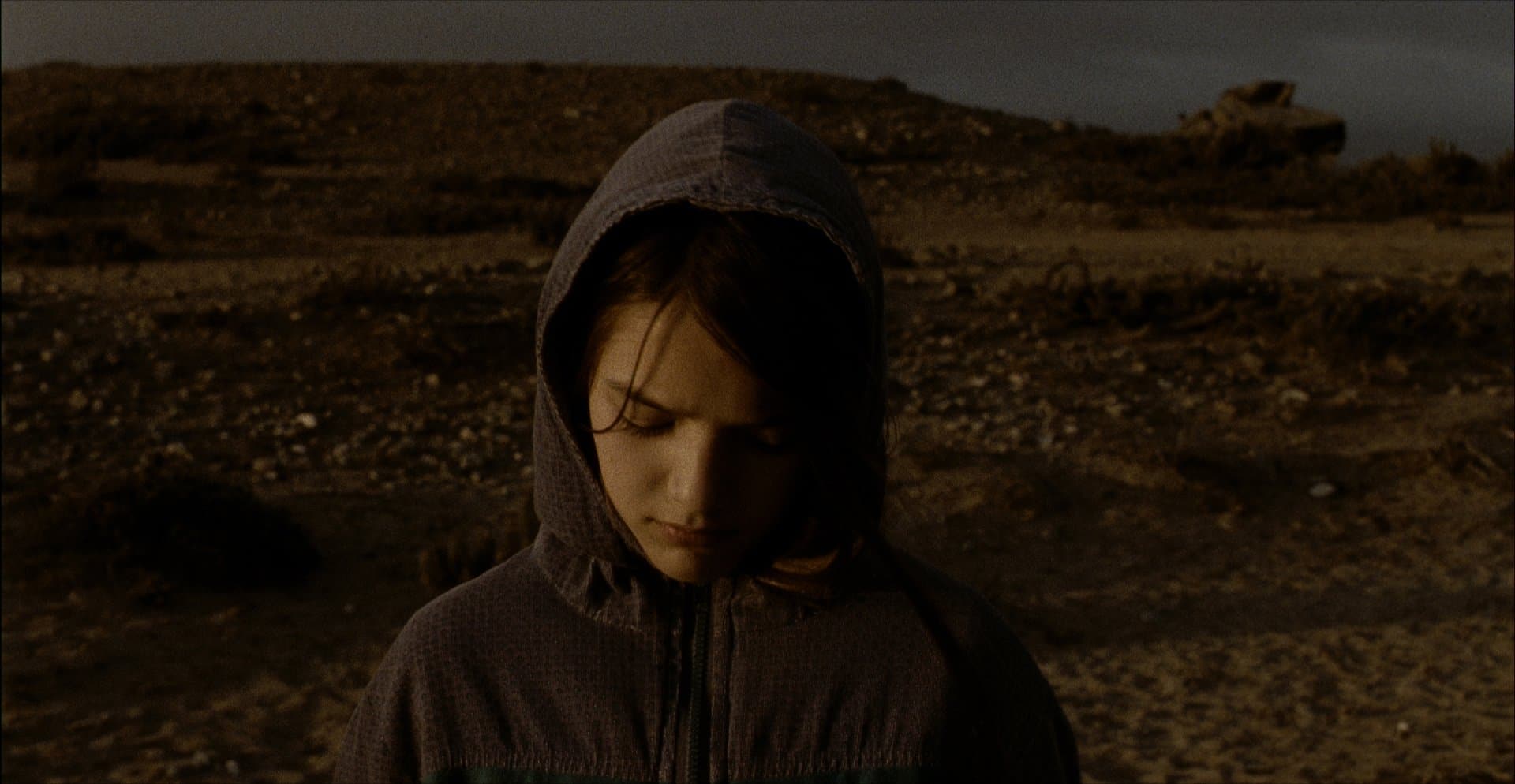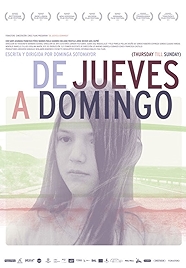Dominga Sotomayor’s remarkable debut feature is a sotto voce drama about a family on a road trip. Proceeding by suggestion rather than assertion, it is in some respects similar to Pablo Trapero’s early, soapy drama Familia Rodante. There are faint hints of the work of Carlos Reygadas in there too, as well as more than a touch of Claire Denis. This is not bad company to be mixing in.
If the long opening locked-camera shot through a bedroom window into a courtyard, where a family is loading a car with baggage and sleeping children, recalls Reygadas’s amazing up-comes-the-dawn opening to Silent Light, then the Claire Denis element is supplied by what follows, as we strain to work out just what sort of film we’re watching.
Mum and dad sit up front, the two kids sit in the back of the car clearly packed for the long haul. Bored car games like I Spy are played, the kids ask for stuff; the parents say no. It’s all very familiar.
But what sort of film is it? A road movie, it seems, with the family coming to some sort of new awareness of something or other by the end of the trip, perhaps. Then the camera gives us a nudge towards young Lucía in the back, long of leg and budding of breast. A girl just on the cusp of young womanhood. We look again at the parents in the front. He’s still handsome; she’s as pretty as she looked before – but on this second glance, having been nudged, we notice the her lips are pursed, and the husband isn’t quite looking at his wife. Something Is Up.
And then Sotomayor pulls right back and throws us back again into the interminable car journey. The sun is out, the roads are long, this is long-distance travel South American style, on big new roads that didn’t exist a generation before.
As the family travels from Santiago to the north the viewer is now with them but on a different journey, scavenging for clues. Suddenly everything looks like a metaphor – when the husband from out of nowhere makes the statement that the “sea belongs to everybody” is that something to do with his marriage being in trouble? What of the two pretty female hitch-hikers he unilaterally decides to pick up? And when young Lucía hits the hand-dryer in the restroom of a roadside pull-in and it delivers only a second of hot air. Another push, another second, and so on. Is that a metaphor too?
It probably isn’t. We’re being teased, in a film that has infected us with an idea upfront, and then left it to replicate. And here’s the thing, now it’s almost as if we’re generating the drama in this superficially featureless film, rather than Sotomayor or her actors. So when a VW Camper enters the scene and there’s a man on board whom the wife seems happy to see but the husband less so, we’re leaning forwards hungrily. Not much has actually happened but in dramatic terms the arrival of this old hippie wagon seems equivalent to the warm-up to the Battle of Helm’s Deep.
No, there are no CGI armies in this odd, small, in many ways very slight film. Big statements are nowhere to be seen. There are no acting gongs to be handed out either. Though they’re all faultless (particularly the kids, Emiliano Freifeld and Santi Ahumada) this is not an actors’ film – it’s almost Noh theatre in the functionality of its characters. Nor does the cinematography reflect inner mood, like it might if Wong Kar Wei were in charge – it’s sunny out the window when the film starts and that’s the way it stays, pretty much.
Indeed, the vast Chilean landscapes are apt – there’s really not much out there apart from sand and scrub. There’s also really not much going on in the car. Or on the face of Lucía the daughter, who is taking everything in nonetheless. Or at the campsites where they pitch their tents. Or in the river where they bathe.
Except there is. Claire Denis, mistress of deep emotional undertow, has a disciple.
Thursday till Sunday – at Amazon
I am an Amazon affiliate
© Steve Morrissey 2012

